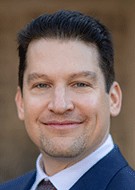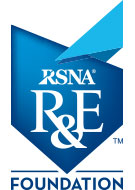Your Donations in Action: Ophir Vermesh, MD, PhD
Engineering Synthetic Reporters for Early Cancer Detection


Lung cancer is the leading cause of cancer-related deaths, often due to late-stage diagnosis. Current cancer screening methods rely on costly imaging, which only provides a snapshot of disease and lacks the sensitivity needed for early disease detection.
To overcome these limitations, 2022 RSNA Research Resident Grant recipient Ophir Vermesh, MD, PhD, then a radiology resident at Stanford University in California, and now an interventional radiology fellow at Brigham and Women’s Hospital in Boston, worked with colleagues to develop a novel, two-step screening system for cancer detection by coaxing cancer cells to produce two signals.
One signal, limonene, can be detected in a person’s breath. The other helps tumors show up on PET imaging. Both signals are activated only in cancer cells by a gene switch active in many tumors.
To deliver this system, the researchers use adenoviral vectors and aim to eventually use minicircles (MCs)—small, safe DNA pieces that don’t trigger immune responses or alter the body’s DNA. This strategy permitsa screening exam in which individuals who test positive for cancer via an inexpensive limonene breath test would then be triaged to [18F] FHBG PET imaging for spatial localization of their tumor.
“By combining exogenously derived cancer biomarkers that have minimal background signal and continuous sampling of breath over time, this work creates a new paradigm that will enable highly sensitive and specific breath-based detection of early cancers,” Dr. Vermesh said. “This study lays the foundation for future clinical translation of a synthetic reporter strategy for early cancer detection.”
Before starting residency, Dr. Vermesh was a postdoctoral researcher in Dr. Sam Gambhir’s lab at Stanford, where he began his work to develop a synthetic cancer reporter detectable through a breath test. The RSNA Research Resident Grant was instrumental in allowing Dr. Vermesh to continue this important research during residency.
“The funding enabled me to collect key data for future grants and build a track record of successfully funded projects,” he said. “Additionally, I had the opportunity to mentor two undergraduate students who significantly contributed to the project’s progress that year.”
For More Information
Learn more about R&E Foundation funding opportunities.
Read our previous Your Donations in Action story.